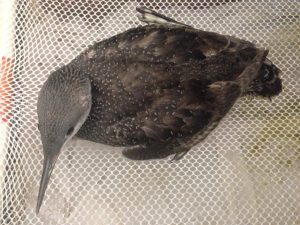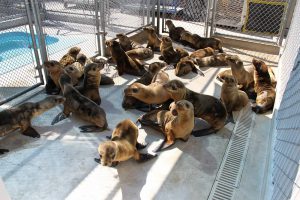Starting late March- early April 2017, researchers, managers, and animal response networks working in Southern California coastal communities noted an increase in wildlife impacts consistent with the onset of a harmful algal bloom (HAB). They observed a large die-off of seabirds in Santa Barbara, Ventura, and Los Angeles Counties and an influx of sea lions exhibiting symptoms of domoic acid (DA) poisoning at several regional marine mammal rescue centers. The California Department of Public Health recently initiated and expanded shellfish advisories to Santa Barbara and Ventura Counties, as results demonstrated toxin in shellfish over the regulatory limit considered safe for human consumption.

With funding from the NCCOS HAB Event Response Program, a team of researchers at the Southern California Coastal Water Research Project, University of Southern California, University of San Diego, and University of California Santa Cruz will document the Southern California bloom event, investigate seabird mortalities, and monitor DA levels in the marine environment. Specific tasks include analyzing DA in marine bird samples to determine lethal levels of exposure, evaluating long-term impacts on crab toxicity through analysis of DA in sediment and benthic organisms, and expanding DA analysis of offshore, subsurface regions not routinely monitored to assess the validity of predictive models

These efforts will address concerns about the effect this bloom may have on the California crab industry, which faced significant HAB-related losses during the past two seasons. Data will also assist state and federal managers striving to mitigate HAB impacts on marine wildlife, protect public health, and maintain public confidence in California seafood.
For more information, contact Marc.Suddleson@noaa.gov.
